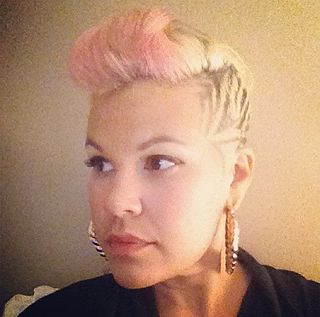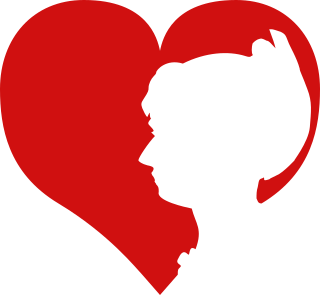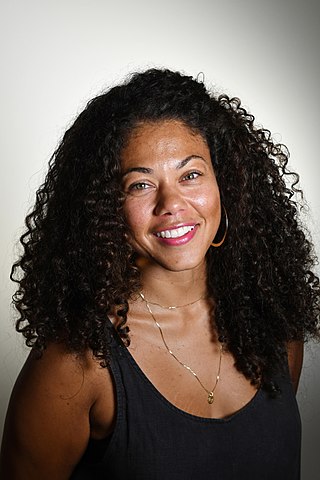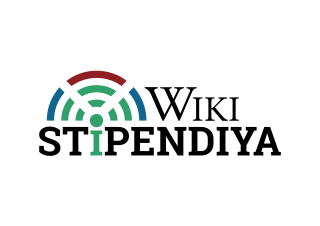
Heather T. Hart is an American visual artist who works in a variety of media including interactive and participatory Installation art, drawing, collage, and painting. She is a co-founder of the Black Lunch Table Project, which includes a Wikipedia initiative focused on addressing diversity representation in the arts on Wikipedia.

The Wikipedia community, collectively and individually known as Wikipedians, is an online community of volunteers who create and maintain Wikipedia, an online encyclopedia. Since August 2012, the word "Wikipedian" has been an Oxford Dictionary entry.

The Odia Wikipedia is the Odia edition of Wikipedia. It is a free, web-based, collaborative encyclopedia project supported by the non-profit Wikimedia Foundation. The project was started by Suneet Samaetha in June 2002 and reached 1,000 articles in May 2011. This is one of the first four Indic Wikipedias started in 2002, among over 20 Indic language Wikipedias. The first edit on Odia Wikipedia occurred on 3 June 2002.

Bassel Khartabil, also known as Bassel Safadi, was a Palestinian Syrian open-source software developer. He was detained without trial by the Syrian government in 2012 and was secretly executed in 2015. Human rights organizations claim that he was detained for his activities in support of freedom of expression, and the United Nations Working Group on Arbitrary Detention considered his detention to have been arbitrary.

An edit-a-thon is an event where some editors of online communities such as Wikipedia, OpenStreetMap, and LocalWiki edit and improve a specific topic or type of content. The events typically include basic editing training for new editors and may be combined with a more general social meetup. The word is a portmanteau of "edit" and "marathon". An edit-a-thon can either be "in-person" or online or a blended version of both. If it is not in-person, it is usually called a "virtual edit-a-thon" or "online edit-a-thon".

Gender bias on Wikipedia is a term used to describe various gender-related disparities on Wikipedia, particularly the overrepresentation of men among both volunteer contributors and article subjects, as well as lesser coverage of and topics primarily of interest to women.

The Women's Center for Creative Work, or WCCW, is a network of women based in Los Angeles who promote art and feminism. Founded in 2013, the WCCW operates through various exhibitions, workshops, dinners, and other special events that connect creative women and feminists. The WCCW was founded in 2013 by Katie Bachler, Kate Johnston, and Sarah E. Williams. In 2015, the WCCW received a grant for Los Angeles–based Social Practice Art projects from SPArt.

The English Wikipedia has been criticized for having a systemic racial bias in its coverage. This bias partially stems from an under-representation of people of color within its volunteer editor base. In "Can History Be Open Source? Wikipedia and the Future of the Past," it is noted that article completeness and coverage is dependent on the interests of Wikipedians, not necessarily on the subject matter itself. The past president of Wikimedia D.C., James Hare, asserted that "a lot of [Black American history] is left out" of Wikipedia, due to articles predominately being written by white editors. Articles about African topics that do exist are, according to some, largely edited by editors from Europe and North America and thus, they only reflect their knowledge and their consumption of media, which "tend to perpetuate a negative image" of Africa. Maira Liriano of the Schomburg Center for Research in Black Culture has argued that the lack of information regarding Black history on Wikipedia "makes it seem like it's not important."

Jina Valentine is a contemporary American visual artist whose work is informed by the techniques and strategies of American folk artists. She uses a variety of media to weave histories—including drawing, papermaking, found-object collage, and radical archiving.

Art and Feminism is an annual worldwide edit-a-thon to add content to Wikipedia about women artists, which started in 2014. The project has been described as "a massive multinational effort to correct a persistent bias in Wikipedia, which is disproportionately written by and about men".

Steffani Jemison is an American artist, writer, and educator. Her videos and multimedia projects explore the relationship between Black embodiment, sound cultures, and vernacular practices to modernism and conceptual art. Her work has been shown at the Museum of Modern Art, Brooklyn Museum, Guggenheim Museum, Whitney Museum, Stedelijk Museum Amsterdam, and other U.S. and international venues. She is based in Brooklyn, New York and is represented by Greene Naftali, New York and Annet Gelink, Amsterdam.

Dame Rosie Gojich Stephenson-Goodknight, known on Wikipedia as Rosiestep, is an American Wikipedia editor who is noted for her attempts to address gender bias in the encyclopedia by running a project to increase the quantity and quality of women's biographies. She has contributed thousands of new articles.

WikiConference North America, formerly WikiConference USA, is an annual conference organized by the Wikipedia community in North America.

AfroCrowd is an initiative to create and improve information about Black culture and history on Wikipedia. The New York City-based project was founded by Alice Backer in 2015.

Women in Red is a WikiProject addressing the current gender bias in Wikipedia content. The project focuses on creating content regarding women's biographies, women's works, and women's issues.
Wiki Loves Pride is a campaign to improve LGBT-related content on Wikipedia and other projects in the Wikimedia movement.

eliza myrie is a visual artist who lives and works in Chicago, IL. Myrie works in a variety of media including sculpture, participatory installation art, public art, and printmaking.

Depths of Wikipedia is a group of social media accounts dedicated to highlighting facts from Wikipedia. Created on Instagram by Annie Rauwerda in 2020, the account shares excerpts from various Wikipedia articles on a number of topics.

WikiStipendiya is a WikiProject aimed at improving content on the Uzbek Wikipedia. The project is organized by the Youth Affairs the Republic of Administration of the President of the Republic of Uzbekistan, the Council of Young Artists, and the Wikimedians of the Uzbek Language User Group. The name of the project is a portmanteau of the words "wiki" and "stipendiya" (scholarship). It focuses on encouraging content creation on the Uzbek Wikipedia, particularly by students, but is not limited to any group. Another goal is to increase the number of editors on Uzbek-language wikis.

Jason Moore is an American Wikipedia editor among the English Wikipedia's most active contributors by edit count. Editing since 2007 as "Another Believer", he has specialized in current events, with coverage including the COVID-19 pandemic, George Floyd protests, and the culture of Portland, Oregon, where he is based. On Wikipedia, Moore has created and developed editor affinity groups for joint work on these topics. As an organizer in the Wikimedia movement, Moore has hosted meet-ups and edit-a-thons to train new editors.

















